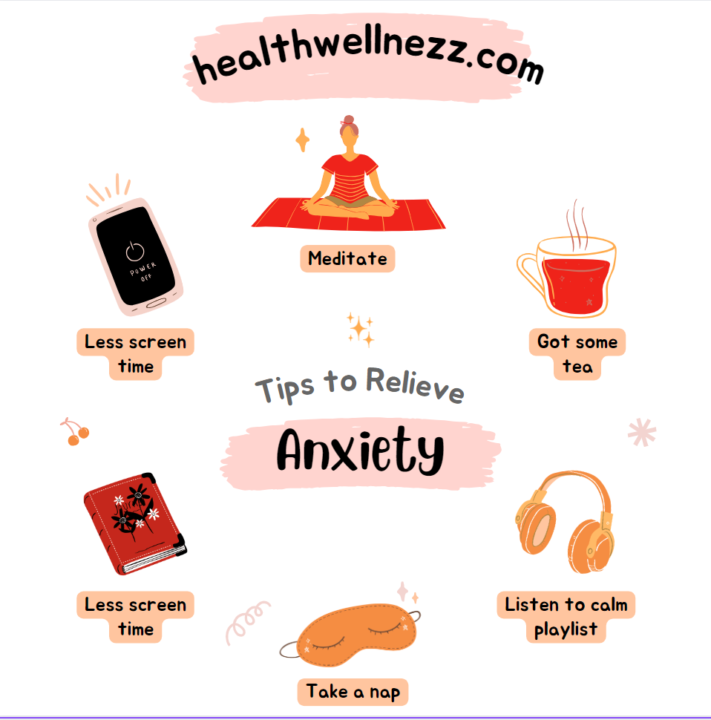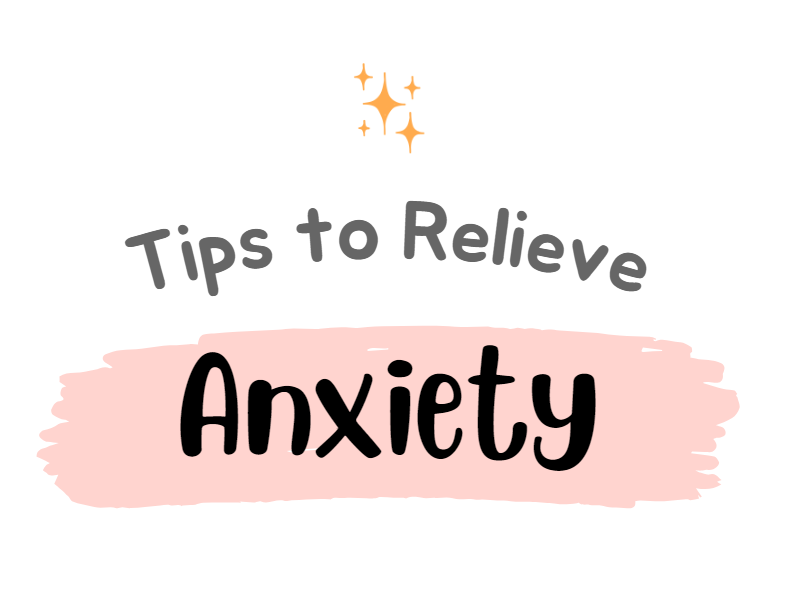Many people around the world deal with functioning anxiety, which is a common mental health issue. Some folks show it in ways that everyone can see and it disrupts their daily life. But there’s another group who goes through it quietly. This is called “high-functioning anxiety.” These people may look successful and calm on the outside, but inside, they feel uneasy a lot. In this blog, we’ll talk about what high-functioning anxiety is and share six signs to help you know if you or someone else might have it.
what is High-functioning anxiety?
- High-functioning anxiety is when someone seems okay on the outside, but inside, they feel really anxious. It’s like having a lot of worries and stress, but you still manage to do your daily tasks. People with high-functioning anxiety might seem calm, but inside, they might be overthinking and feeling tense. It’s important to talk about it and get support, even if it doesn’t show on the surface.
signs of High-functioning anxiety or High-functioning anxiety symptoms
- Sign 1: Perfectionism
- Many individuals with high-functioning anxiety are perfectionists. They strive for flawlessness in their work, relationships, and personal lives. While this drive for excellence can lead to success, it often comes at the cost of chronic anxiety. People with high-functioning anxiety may feel compelled to over-prepare for tasks, repeatedly check their work, or constantly seek validation and reassurance from others.
- Sign 2: Overthinking
- Overthinking is a hallmark of high-functioning anxiety. Individuals with this condition often engage in incessant rumination, second-guessing themselves, and creating worst-case scenarios in their minds. Overthinking can be paralyzing, making even simple decisions feel overwhelming.
- Sign 3: Chronic Self-Doubt
- Chronic self-doubt is closely related to overthinking. People with high-functioning anxiety tend to doubt their abilities, decisions, and worth, even when they have evidence to the contrary. This self-doubt can erode self-esteem and hinder personal and professional growth.
- Sign 4: Avoidance Behaviors
- Individuals with high-functioning anxiety may employ avoidance behaviors as a coping mechanism. They may avoid situations that trigger their anxiety or procrastinate to delay dealing with stressors. While avoidance may provide temporary relief, it perpetuates anxiety in the long run.
- Sign 5: Physical Symptoms
- High-functioning anxiety is not solely a mental or emotional issue. It often manifests physically as well. Individuals may experience symptoms such as tension, restlessness, muscle aches, fatigue, and sleep disturbances. These physical symptoms can lead to a cycle of heightened anxiety.
- Sign 6: Concealing Anxiety
- Perhaps the most defining characteristic of high-functioning anxiety is the art of concealing it. People with this condition are skilled at masking their distress, even from close friends and family. They may worry that revealing their anxiety will burden others, or they simply prefer to keep their struggles private.
Also Read: Top 10 tips to maintain your mental health & how to maintain a healthy mental health.
Finding relief from High-functioning anxiety is important for your well-being.
Here are some simple ways to help ease anxiety :
- Deep Breathing: Take slow, deep breaths. Inhale through your nose, hold for a few seconds, and then exhale through your mouth. Repeat this to calm your mind.
- Take Breaks: Give yourself short breaks during the day. Step away from what you’re doing, stretch, or take a walk. It can refresh your mind and reduce anxiety.
- Talk to Someone: Share your feelings with a friend, family member, or someone you trust. Sometimes, talking about what’s on your mind can make you feel better.
- Mindfulness and Relaxation: Practice mindfulness or try relaxation techniques like meditation. It can help you stay focused on the present moment and ease anxiety.
- Limit Caffeine and Sugar: Too much caffeine or sugary foods can make anxiety worse. Try to cut back on these and choose healthier alternatives.
- Get Moving: Exercise is a great way to reduce anxiety. Even a short walk or some light stretching can make a difference.
- Prioritize Sleep: Make sure you get enough sleep. Lack of sleep can contribute to anxiety, so establish a calming bedtime routine.
- Set Realistic Goals: Don’t set unrealistically high standards for yourself. Break tasks into smaller, more manageable goals to avoid feeling overwhelmed.
- Remember, finding relief from anxiety is a process, and it’s okay to seek professional help if needed. Take small steps, be patient with yourself, and focus on what helps you feel better.

-
High-functioning anxiety is essential for maintaining mental well-being and preventing burnout.
Here are some strategies to consider:
- Mindfulness and Meditation: Practicing mindfulness can help individuals become more aware of their anxious thoughts and develop healthier responses to them. Meditation and deep breathing exercises can promote relaxation and reduce anxiety.
- Cognitive Behavioral Therapy (CBT): CBT is an evidence-based therapy that can help individuals identify and reframe negative thought patterns. It provides tools to manage anxiety and improve overall mental health.
- Self-Care: Prioritizing self-care is crucial. This may include maintaining a balanced diet, regular exercise, and adequate sleep. Taking time for hobbies, relaxation, and spending time with loved ones can also reduce stress.
- Stress Management Techniques: Learning stress management techniques, such as time management, setting boundaries, and using stress-relief practices like yoga or journaling, can be highly effective.
- Support Systems: Building a strong support network is invaluable. Opening up to friends and family about your struggles allows them to provide emotional support and understanding.
- Professional Help: If high-functioning anxiety is significantly affecting your life, consider seeking professional help from a therapist, counselor, or psychiatrist. Therapy can provide tools and strategies for managing anxiety.
-
Seeking Professional Help
- It’s essential to recognize that high-functioning anxiety is a legitimate mental health condition that can significantly impact one’s life. While some individuals may manage it successfully on their own, others may need professional assistance. Seeking help is a sign of strength, not weakness.
- Here’s why seeking professional help is vital:
- Expert Guidance: Mental health professionals have the training and experience to understand the intricacies of high-functioning anxiety and provide targeted treatment.
- Objective Perspective: Professionals offer an objective viewpoint, helping individuals identify thought patterns and behaviors that contribute to their anxiety.
- Tailored Treatment: Therapists can design a treatment plan customized to an individual’s needs, including therapy modalities, medication, or a combination of both.
- Support and Validation: Therapy provides a safe space for individuals to discuss their struggles without judgment, fostering emotional healing.
- Preventing Escalation: Seeking help early can prevent high-functioning anxiety from escalating into more severe conditions or physical health issues.
- Remember that professional help doesn’t mean you’re “broken.” It means you’re proactively taking steps to manage your mental health and improve your overall well-being.
- Here’s why seeking professional help is vital:
- It’s essential to recognize that high-functioning anxiety is a legitimate mental health condition that can significantly impact one’s life. While some individuals may manage it successfully on their own, others may need professional assistance. Seeking help is a sign of strength, not weakness.
-
Promoting Self-Acceptance
- Living with high-functioning anxiety can be challenging, but it’s important to practice self-acceptance and self-compassion. Here are some key principles to keep in mind:
- You’re Not Alone: There are many others experiencing high-functioning anxiety, and you’re not alone in this journey. Connecting with support groups or communities can provide a sense of belonging and understanding.
- It’s Okay to Seek Help: Seeking professional help is a courageous and wise choice. Therapy is not a sign of weakness; it’s a sign of taking control of your mental health and well-being.
- Self-Care is Vital: Prioritize self-care and self-compassion. Be kind to yourself, recognize your accomplishments, and allow yourself to rest when needed.
- Progress Over Perfection: Shift your focus from perfection to progress. Understand that nobody is perfect, and making small, consistent steps forward is a significant achievement.
- You Are Not Defined by Your Anxiety: High-functioning anxiety is a part of you, but it doesn’t define your entire being. You have a unique identity and a wealth of strengths beyond your anxiety.
- Celebrate Small Wins: Celebrate your victories, no matter how small they may seem. Each step you take to manage your anxiety is a step towards a brighter future.
- Living with high-functioning anxiety can be challenging, but it’s important to practice self-acceptance and self-compassion. Here are some key principles to keep in mind:
How to treat high-functioning anxiety?
- Understanding Your Feelings: Begin by recognizing and understanding what you’re feeling. High-functioning anxiety can be sneaky, so take time to identify when you’re feeling stressed or overwhelmed.
- Talk About It: Don’t keep it to yourself. Share your feelings with someone you trust, like a friend, family member, or therapist. Expressing your emotions can be a big relief.
- Mindful Breathing: Practice simple breathing exercises to help calm your mind. Take slow, deep breaths in and out. This can bring a sense of relaxation and reduce anxiety.
- Set Realistic Goals: Don’t aim for perfection. Break tasks into smaller, more achievable goals. Celebrate your successes, no matter how small, and don’t be too hard on yourself for what you couldn’t do.
- Self-Care Routine: Establish a self-care routine that includes activities you enjoy. Whether it’s reading, taking a walk, or listening to music, these moments of self-care can make a big difference in managing high-functioning anxiety.
Remember, you have the strength and resilience to overcome the challenges posed by high-functioning anxiety. With the right support and strategies, you can find relief, inner peace, and a life where you thrive, not just survive. Your mental health is a valuable asset, and investing in it is an investment in a healthier, happier you.
frequently asked questions

- How do I stop high-functioning anxiety?
- Take Breaks: Give yourself timeouts during the day to relax and breathe.
- Talk About It: Share your feelings with someone you trust, like a friend or family member.
- Set Realistic Goals: Don’t aim for perfection – set achievable goals and celebrate small wins.
- Mindfulness: Try activities like deep breathing or meditation to stay present and calm.
- Ask for Help: If it feels too much, don’t hesitate to seek support from a therapist or counselor.
- Remember, it’s okay not to be perfect. Taking small steps can make a big difference in managing high-functioning anxiety.
-
How do you know if your anxiety is high?
- Constant Worry: Do you find yourself worrying a lot, even about small things?
- Trouble Relaxing: Is it hard for you to relax, even when you try?
- Feeling Restless: Do you feel jittery or restless without a clear reason?
- Tiredness: Does anxiety make you feel tired, even if you haven’t done much?
- Trouble Focusing: Do you find it difficult to concentrate because of anxious thoughts?
- Physical Symptoms: Do you experience things like headaches or stomachaches linked to stress?
- If you notice these signs often, it might be a sign your
- What triggers high anxiety?
- Many things can make someone feel super anxious. It’s like a switch that turns on in your brain. Some common triggers include stress, big changes, or even too much pressure. Everyone’s different, so what makes one person anxious might not bother someone else. It’s important to figure out your own triggers and find ways to deal with them. If you’re not sure, talking to someone you trust or a professional can really help.
-
What happens to the brain when anxiety is high?
- When anxiety is high, our brain reacts in different ways. It’s like a superhero trying to protect us from danger, but sometimes it gets a bit too active. The amygdala, a part of our brain, sounds an alarm, making us feel anxious and on edge. Another part, the prefrontal cortex, gets a bit fuzzy, making it hard to think clearly. So, when anxiety is high, our brain is working hard, but not always in the best way. Taking deep breaths and finding calm can help our brain chill out a bit.







